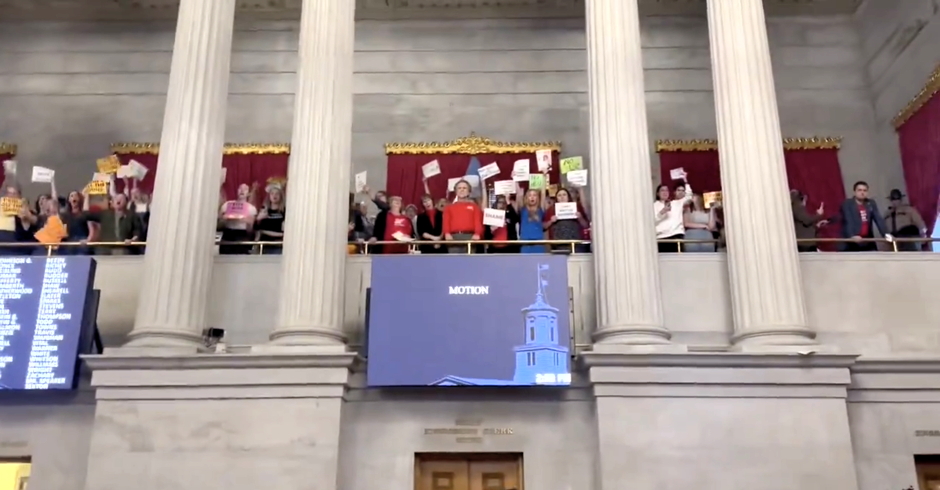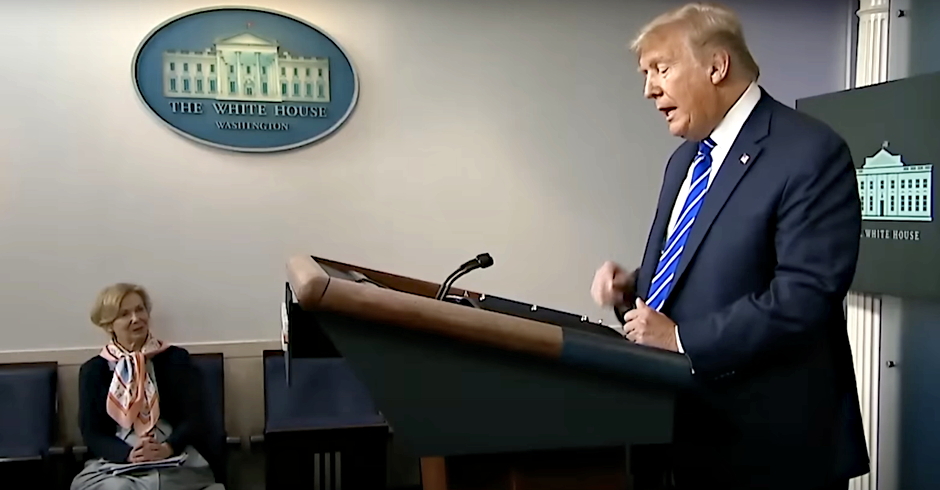News
30 Years Later, Gay Author Michael Nava Re-Imagines His 1st Mystery Novel
“Little Death” Returns As “Lay Your Sleeping Head,” A Work Of Depth and Maturity
In a major LGBT literary event, 30 years after its original issue, Michael Nava has published a revision–or more accurately, a re-imagining–of his first mystery novel, The Little Death. The new publication, entitled Lay Your Sleeping Head, is a mature novel that transcends the expectations of the mystery genre.
In the 1980s, Nava emerged as a leading practitioner of the gay mystery novel. In his acclaimed seven-novel series featuring Chicano lawyer Henry Rios — The Little Death (1986), Goldenboy (1988), How Town (1990), The Hidden Law (1992), The Death of Friends (1996), The Burning Plain (1997), and Rag and Bone (2001) — Nava established himself as a worthy successor to Joseph Hansen, who pioneered the gay mystery novel in the 1970s by presenting for the first time in the crime genre a rich variety of LGBT characters, unsensationally, as individuals with understandable desires, triumphs, and frustrations.
As Ted Pebworth has observed, Nava’s protagonist is conceived in the mold of the American hardboiled detective who stands outside society and, as a consequence, sees more clearly than most its corruption, injustice, and inequality.
Rios is doubly an outsider in all of the worlds in which he lives and works. First, he is a Chicano in an Anglo society and an Anglo-dominated profession. Although his brilliance as a criminal lawyer is widely recognized, he often feels uncomfortable with and condescended to by his clients and professional associates.
Second, he is a gay man, who faces homophobia both in his profession and in the Chicano society with which he identifies. Despised by his father for not being manly enough, and distrusted by other Chicanos because of his education, his profession, and what they perceive as his collaboration with the Anglo society at large, he is constantly aware of his difference, and of his failure to fit in.Â
Nava has explained his attraction to the mystery in terms of its function as a vehicle to explore his own “sense of ‘otherness’ and estrangement from mainstream culture — as a gay man in a straight world and a brown man in a white world.”
“In classic noir novels — by Chandler and Ross Macdonald, for example — you had an outsider hero who embodied the virtues the mainstream pretended to honor — loyalty, courage, ingenuity — but rarely demonstrated,” Nava has said. “This was the perfect setting for a queer Latino lawyer struggling to do the right thing in a hostile world. That’s why I wrote mysteries, not because I set out to be a mystery writer.”
A man who is obsessed with his work, often at the expense of his personal relationships, Rios is a relentless defender of outsiders who are otherwise defenseless, most of them young gay men who are victims of a homophobic or exploitative society. In the process of defending them, he proves himself a tenacious and insightful detective.
The seven novels are more than puzzles to be unraveled. Indeed, the novels are less plot-driven than character-driven. What sets them — especially the last five — apart from much detective fiction, in addition to their highly textured and allusive prose, is the depth with which Nava probes character and motivation.
In the series, Rios is gradually revealed to be more complex and more introspective than most fictional detectives, and his internal struggles and his often tortured relationships with others provide the major interest of the books and lift them above their formulaic genre. As Christopher Bram has observed, the series develops into “a large-scale moral portrait of one man’s life over fifteen years.”
In the course of the series, Nava grew from a competent mystery novelist to a writer of unusual insight.
And over the course of the series, Rios develops in convincing yet unpredictable ways. In Pebworth’s summary, he “moves from the Bay Area to Los Angeles; suffers from occupational burnout; succumbs to and eventually overcomes alcoholism; falls in love with a young man who is HIV-positive and subsequently loses him to AIDS; suffers a heart attack; slowly comes to terms with his homosexuality, his abusive father, his neglectful mother, and his emotionally distant lesbian sister; is nominated to a judgeship; and finally establishes an unusual but potentially nurturing family within his Chicano culture.”
As Garth Greenwell has noted, what comes to the fore in the later novels “are Rios’s relationships with his family and the queer and Latino communities, and with the horror wrought by AIDS and by the hatred of gay people that prevented an effective response to the epidemic.”Â
Nava’s decision to abandon the Rios series in 2001 was deeply disappointing to many. Hence, his return to the series with Lay Your Sleeping Head is a cause for celebration.
The Little Death, the first novel in the series, was initially envisioned as a “one-off†experiment rather than as the beginning of a series. It is an accomplished first-novel that tells an interesting story and introduces intriguing characters; but it lacks the complexity and depth that becomes apparent in the third volume of the series, How Town, and which also distinguish the final four.
In a recent interview, Nava explained that he undertook the revision of The Little Death for two reasons: “One, I’m a much better writer now than I was at 25 when I started writing that book and two, having written a series of books — which I hadn’t planned to do at the beginning — I now had a better idea of Rios’s character and motivations and what would become of him. So I treated the published book as a first draft of the first chapter of a single novel in seven parts.â€
He added: “The revised work was so different, I thought it deserved a new title to signal that it is a very different version of the story.â€
The new title is the first line of W.H. Auden’s “Lullaby,†one of the greatest love poems of the twentieth century. Naming the novel with a literary allusion brings it into conformity with Nava’s practice in other novels of the Rios series, whose titles allude to poems by cummings, Dante, Auden, Cavafy, and Homer. The allusions enrich the texts and place them in significant literary contexts. Nava’s allusions, both in the titles and within the novels, though subtle and unobtrusive, are nearly always meaningful, and they add to the moral seriousness of the works.
The allusion to “Lullaby†is particularly important because Auden’s poem places the relationship it celebrates in a context of mutability and decay that poignantly underlines the fragility of a love endangered from within by shame, promiscuity, and betrayal, and from without by the disapproval of homophobes — the “pedantic boring cry†of “fashionable madmen.†The speaker of the poem, as he cradles his lover’s head “Human on my faithless arm,” describes him as “Mortal, guilty, but to me / The entirely beautiful,†words that Henry Rios could also apply to Hugh Paris, the man whose murder propels the plot of Lay Your Sleeping Head.
Among the most significant re-imaginations of the original novel is the fuller development of Rios’s relationship with Paris and, after his death, with another young man, Grant Hancock. In the new work, the relationships are more convincing and more layered than in the original, where they functioned primarily as plot devices.
This development involves a greater introspectiveness on the part of Rios, and also includes the addition of explicit sex scenes. Although the explicitness of these scenes may be disconcerting to aficionados of the mystery, a genre that generally avoids sex scenes altogether, Â they are justified by their illumination of characters and relationships.
The re-imagination of the original novel also includes a fuller sense of its setting in the early 1980s, especially a more acute awareness of the events of the era that threatened LGBT people. There is, for example, a recounting of the White Night Riots of 1979, the riots that occurred when Dan White, the murderer of gay City Supervisor Harvey Milk and San Francisco Mayor George Moscone, was sentenced to less than eight years of prison. There is also an allusion to the first reports of the “gay cancer” that was subsequently named AIDS.
The gay characters in the re-imagined novel feel deeply the precariousness of their careers and lives in a society in which they have few legal protections.
Since the publication of the original novel, LGBT people and Hispanics have made significant progress toward acceptance in mainstream American society. Hence, it is important to be reminded of the difficulties both groups faced in the 1980s. Lay Your Sleeping Head is, after all, a historical novel as well as a mystery.
Nava’s re-imagining of The Little Death also entails some clarification of various plot points, tying up some loose ends,  and expanding the scope of inquiry from solving a mystery to probing philosophical questions as well as personal relationships.
The major thematic difference between The Little Death and the new work is the latter’s emphasis on inequality in all its forms. All great fortunes are built on the backs of others, Rios realizes, as he explores the source of the great railroad fortune at the heart of the mystery, which was built in part upon the exploitation and sacrifices of Chinese workers.
As with other explorations in Lay Your Sleeping Head, the issue of inequality is more complex and multi-faceted than it might at first appear.
Lay Your Sleeping Head is published by Kórima Press, an independent publisher committed to Queer Ch/Xicana and Ch/Xicano literary art. The volume, which may be purchased here contains, in addition to the novel, a fascinating Afterword entitled “The Making of Henry Rios.” In the Afterword, Nava discusses the origins of the Rios novels and their autobiographical elements, and, among other topics, his relationships with Joseph Hansen and the publisher Sasha Alyson.
Michael Nava is author not only of the Rios novels, six of which won Lambda Literary Awards, but also of the acclaimed historical novel, City of Palaces (2014), which is set in the years before and during the Mexican Revolution of 1910.Â
City of Palaces is published by the University of Wisconsin Press. It was a finalist for the 2014 Lambda Literary Award for best gay novel and won the 2014 International Latino Literary Award for best novel.
In the video below, Nava reads from and discusses City of Palaces at UCLA.
Â
Â
Â
Â
Enjoy this piece?
… then let us make a small request. The New Civil Rights Movement depends on readers like you to meet our ongoing expenses and continue producing quality progressive journalism. Three Silicon Valley giants consume 70 percent of all online advertising dollars, so we need your help to continue doing what we do.
NCRM is independent. You won’t find mainstream media bias here. From unflinching coverage of religious extremism, to spotlighting efforts to roll back our rights, NCRM continues to speak truth to power. America needs independent voices like NCRM to be sure no one is forgotten.
Every reader contribution, whatever the amount, makes a tremendous difference. Help ensure NCRM remains independent long into the future. Support progressive journalism with a one-time contribution to NCRM, or click here to become a subscriber. Thank you. Click here to donate by check.
 |





















